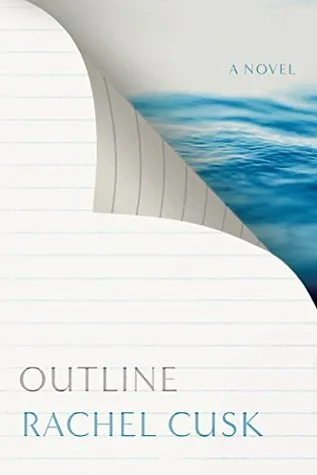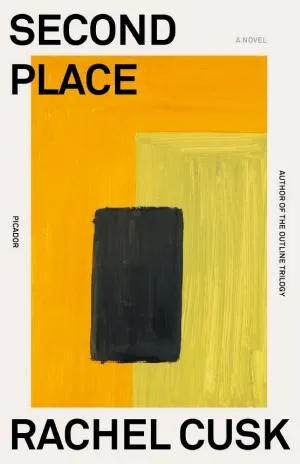
He was thirty-six years old and still felt the force of exponential growth in his veins, of life straining to burst the vessel in which it had been contained. He could have it all again, with the difference that this time he would want what he had.
But in a way it’s like looking at old photographs of yourself. There comes a point at which the record needs to be updated, because you’ve shed too many links with what you were. He doesn’t quite know how it happened; all he knows is that he doesn’t recognise himself in those stories anymore, though he remembers the bursting feeling of writing them, something in himself massing and pushing irresistibly to be born. He hasn’t had that feeling since; he almost thinks that to remain a writer he’d have to become one all over again, when he might just as easily become an astronaut, or a farmer.
In his marriage, he now realised, the principle of progress was always at work, in the acquiring of houses, possessions, cars, the drive towards higher social status, more travel, a wider circle of friends, even the production of children felt like an obligatory calling-point on the mad journey; and it was inevitable, he now saw, that once there were no more things to add or improve on, no more goals to achieve or stages to pass through, the journey would seem to have run its course, and he and his wife would be beset by a great sense of futility and by the feeling of some malady, which was really only the feeling of stillness after a life of too much motion, such as sailors experience when they walk on dry land after too long at sea, but which to both of them signified that they were no longer in love. If only we had had the sense, he said, to make our peace with one another then, to start from the honest proposition that we were two people not in love who nonetheless meant one another no harm; well, he said, his eyes brimming again, if that had been the case I believe we might have learned truly to love one another and to love ourselves.
What Ryan had learned from this is that your failures keep returning to you, while your successes are something you always have to convince yourself of.
There was a great difference, I said, between the things I wanted and the things that I could apparently have, and until I had finally and forever made my peace with that fact, I had decided to want nothing at all.
And I realised eventually, I said, that it could never be resolved, not so long as the aim was to establish the truth, for there was no single truth any more, that was the point. There was no longer a shared vision, a shared reality even. Each of them saw things now solely from his own perspective: there was only point of view.
There was no such thing as an unblemished childhood, though people will do everything they can to convince you otherwise. There was no such thing as a life without pain.
You build a whole structure on a period of intensity that’s never repeated. It’s the basis of your faith and sometimes you doubt it, but you never renounce it because too much of your life stands on that ground.
But the only hope of finding anything is to stay exactly where you are, at the agreed place. It’s just a question of how long you can hold out.
It seems success takes you away from what you know, he said, while failure condemns you to it.
‘The parts of life that are suffocating’, Angeliki said, ‘are so often the parts that are the projection of our parents’ own desires.
Perhaps, he said, we are all like animals in the zoo, and once we see that one of us has got out of the enclosure we shout at him to run like mad, even though it will only result in him becoming lost.
For most of the people she knew, people in their forties, this was a time of softening and expanding, of expectations growing blurred, of running a little to seed or to fat after the exhaustion of the chase: she saw them beginning to relax and make themselves comfortable in their lives.
He began to ask me questions, as though he had learned to remind himself to do so, and I wondered what or who had taught him that lesson, which many people never learn.
And likewise I was beginning to see my own fears and desires manifested outside myself, was beginning to see in other people’s lives a commentary on my own.
And if there’s one thing I know it’s that writing comes out of tension, tension between what’s inside and what’s outside.
This anti-description, for want of a better way of putting it, had made something clear to her by a reverse kind of exposition: while he talked she began to see herself as a shape, an outline, with all the detail filled in around it while the shape itself remained blank. Yet this shape, even while its content remained unknown, gave her for the first time since the incident a sense of who she now was.
They were both still young enough to believe that this principle of growth was exponential; that life was only expansive, and broke the successive vessels in which you tried to contain it in its need to expand more.
That time spent swimming in the pool beneath the waterfall belongs nowhere: it is part of no sequence of events, it is only itself, in a way that nothing in our life before as a family was ever itself, because it was always leading to the next thing and the next, was always contributing to our story of who we were.
If only we had had the sense, he said, to make our peace with one another then, to start from the honest proposition that we were two people not in love who nonetheless meant one another no harm; well, he said, his eyes brimming again, if that had been the case I believe we might have learned truly to love one another and to love ourselves.
I wasn’t sure it was possible, in marriage, to know what you actually were, or indeed to separate what you were from what you had become through the other person.
I said that I thought most of us didn’t know how truly good or truly bad we were, and most of us would never be sufficiently tested to find out.
‘I would like’, she resumed, ‘to see the world more innocently again, more impersonally, but I have no idea how to achieve this, other than by going somewhere completely unknown, where I have no identity and no associations.

Least of all did I understand what freedom was and how I could attain it. I thought it was a mere unbuttoning, a release, where in fact—as you know well—it is the dividend yielded by an unrelenting obedience to and mastery of the laws of creation. The rigorously trained fingers of the concert pianist are freer than the enslaved heart of the music lover can ever be. I suppose this explains why great artists can be such dreadful and disappointing people. Life rarely offers sufficient time or opportunity to be free in more than one way.
These two feelings, always coming in a pair, the better to incapacitate and handcuff me—I have been troubled by them right from the beginning, when Justine arrived on this earth and seemed to want to stand in the same spot that I stood in, only I was there first. I could never reconcile myself to the fact that just as you’re recovered from your own childhood, and finally crawled out of the pit of it and felt the sun on your face for the first time, you have to give up that place in the sun to a baby you’re determined won’t suffer the same way you did, and crawl back down into another pit of self-sacrifice to make sure she doesn’t!
For the first time, Jeffers, I considered the possibility that art—not just L’s art but the whole notion of art—might itself be a serpent, whispering in our ears, sapping away all our satisfaction and our belief in the things of this world with the idea that there was something higher and better within us which could never be equalled by what was right in front of us.
The thing is, Jeffers, that between two people as different as Tony and me there needs to be an act almost of translation, and at times of crisis it’s very easy for something to get lost in that act. How could we be sure we understood one another? How could we know that what we were seeing and responding to was the same thing?
My suspicion was that the artist’s soul—or the part of his soul in which he is an artist—has to be entirely amoral and free of personal bias. And given that life as it goes on works to reinforce our personal bias more and more in order to allow us to accept the limitations of our fate, the artist must stay especially alert so as to avoid those temptations and hear the call of truth when it comes. That call, I believe is the easiest thing in the world to miss—or rather, to ignore. And the temptation to ignore it comes not just once but a thousand times, all the way until the end. Most people prefer to take care of themselves before they take care of the truth, and then wonder where their talent has disappeared off to.